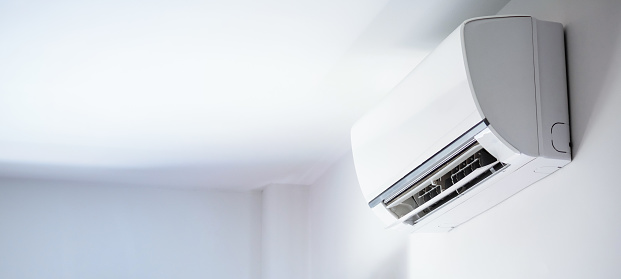
We like to believe that we are giving our dogs a happy, healthy life as pet parents. We feed them top-quality food, give them heaps of adoration, and throw the ball around the patio at whatever point we have the opportunity.
However, there is much more to raising a healthy puppy. Furthermore, once in a while, our bustling ways of life make us ignore a few basic estimates that could assist with broadening the life expectancy of our canines.
Even though our dogs live much longer than we do, we can make minor adjustments to their care and way of life to help them live as long as possible in comfort.
Being proactive as opposed to reactive is all about prevention. Your dog’s quality of life and longevity can both be improved with the help of the hints below.
Furthermore, generally, it is likewise practical over the long haul to be preventive. It’s the least we can do for our dogs, who bring us so much joy, and it benefits everyone.
Pets are beloved by the majority. Additionally, adopting a pet is a popular pastime for many. Do you like pets then? Or then again would you say you are looking through data about how to care for dogs?
Therefore, stop looking and read the information below about how to care for dogs in your home.
Maintaining your dog’s teeth is a must.
Tooth decay is a common and dangerous health problem for dogs. The justification for this is that tooth rot leads to dental issues and can likewise incite different diseases all through the canine’s body, particularly in the kidneys and the heart.
You already know that the majority of puppies won’t have flawless teeth or clean breath as people do, but their gums and teeth should be fairly clean.
Buy an exceptional teeth-cleaning unit, that incorporates a little brush and unique toothpaste to clean your little guy’s teeth. To clean below the gum line, use a double-headed brush with the heads angled at 45 degrees.
To keep your dog’s teeth clean, make sure to brush them at least twice a week. If your dog has a lot of plaque, take him or her to the vet right away to have it removed.
Give your dog regular exercise
Dogs, like humans, need physical activity. In theory, your pet should exercise for at least an hour and a half each day to improve their health and maintain a healthy weight.
While you shouldn’t make these dog exercises a regular part of your routine, you should allow them to run and explore outside on a regular basis in addition to the occasional walks you take them on.
You can also allow your dog to play with other dogs in the area during their exercise time. Canines partake in this movement since, besides getting the necessary actual work, playing with different canines keeps them genuinely solid too.
Keep their psyche or mind sharp, as well.
Like people, canines thrive on mental excitement to keep their brains sharp and thus feel blissful. An anxious, depressed, or even ill puppy can result from boredom. You can absolutely expand your canine’s life by keeping its psyche in shape.
Keep their minds active as they get older by engaging in a variety of training sessions, games, socialisation, one-on-one attention, and other mind-satisfying activities. It’s never past the point where it is possible to show a grown-up dog new tricks.
You can try a dog sport like flyball, carting, agility, or lure coursing or enrol in progressive obedience lessons. Your four-legged companion will thrive on the additional stimulation, and as you learn new skills together, your bond will strengthen.
Give additional consideration to assisting a canine with living longer.
Give additional consideration to your little guy as they age; there will be changes. Therefore, it is essential to pay attention to these changes, alter your behaviour, and occasionally even alter the layout of your home to accommodate your ageing dog.
Eyesight: They may have difficulty navigating their everyday environment as a result of their changing eyesight. Try to keep your furniture in the same order, and don’t move anything around.
Hearing: The same goes for their hearing; if you approach them from behind and they don’t hear you, they might become startled. Consider the situations in which they rely on their hearing, particularly for reasons of safety, and modify their routine or surroundings.
For instance, don’t leave a more established little guy outside unattended who will most likely be unable to see or hear as well as they once used to, as these could prompt appalling mishaps like tumbling down steps or heading into traffic incidentally.
Get enough rest: You might see your little guy rest longer, or they might stand and appear to gaze into a dead zone or even corners for minutes all at once. They may likewise experience difficulty remembering you or relatives who visit once in a while.
As with any ageing process, the best way to combat cognitive decline is to begin early, before it becomes a problem. It is very important to keep your dog’s mind active as they get older.
Use puzzle toys (for mealtime or if they are food motivated), take them on a “sniffer” where they can sniff for as long as they like, or let them watch “dog TV” on YouTube.
Try not to skip vet visits.
Current veterinary medication has seen significant enhancements in forestalling and overseeing well-being worries in canines.
Fruitful immunisation and parasite board programs have successfully decreased the rate of sickness in the two canines and people – including toxocariasis, which can be communicated from canine defecation to people, and rabies, which can be sent canine to canine or canine to human.
Having a decent connection with your vet will permit you to tailor medicines and examine your canine’s necessities.
Health checks on a regular basis can also be helpful in identifying any potential problems that can be treated, like problems with the dog’s teeth or osteoarthritis, which can cause pain and have a negative effect on the dog’s well-being.





